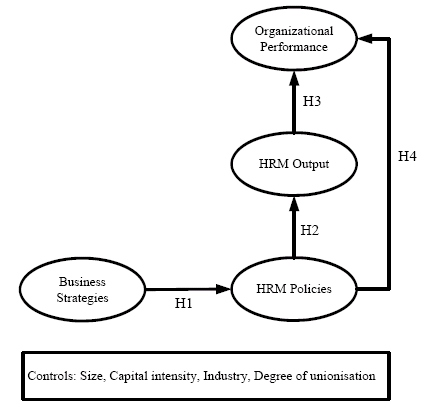The Introduction
Getting entry and success in the Oman Market is a serious task successfully accomplished by the Nawras Company, which works in the area of mobile connection. The role of the HRM policy in this significant achievement is crucial, as this significant result gained by the company can be mainly considered as the achievement of its workers.
Varied business theories, especially the theories of motivation can be applied in the case of the Nawras Company in a broad way. Generally, the role of the HRM policy in gaining entry and success in the Oman Market for the Nawras Company can be evaluated as critically important, as well as flexibility and creativity, which were also vital for gaining this market.
The body
General information about the company
Speaking about the matters related to the operation of the Nawrwas Company and the HRM policy, in particular, the general information about the company should be considered. The Nawrwas Company is the mobile operator providing a variety of services, including the Internet connection and mobile connection (Nawras: Business Solutions par.43).
The company entered the market of Oman in 2005, facing a row of difficulties in this country with unusual mentality and business approach by the local population (Omani Qatari Telecommunications Company 2010 par.83). According to Omani Qatari Telecommunications Company,
Nawras is a leading provider of telecommunications services in Oman. Nawras’ vision is to enrich the lives of the people of Oman through better communication services, and its mission is to be the communications provider, and employer, of choice in Oman (par. 345).
Business theories which can be applied in case of the Nawras
Generally, one is to keep in mind that HRM policies can work, if they are used along with other business strategies. So, “cost reduction, quality enhancement and innovation, for an organization to gain and retain competitive advantage, could be obvious candidates” (Katou 2008 p. 122). It is also necessary to point out that business strategies impact on HRM policy. One can call this affirmation as hypothesis 1 or H1.
On the other hand, the impact of the policies on the employees’ attitudes and behaviors seems to be also direct. Thus, improved organizational performance is the result of the policy implementation. So, one can state that there is a direct interdependence between HRM policies and the outcomes. One can call this affirmation as hypothesis 2 or H2.
When speaking about International Business Theory, one is to keep in mind that external factors influence the success of the company. Nevertheless, performance appraisal, training and some other abilities influence the employees’ motivation to perform certain tasks.
According to IBT, there are skilled and experienced employees, who contribute to the company’s success (Appelbaum et al., 2000). So, there is a certain interdependence between organizational performance and the policies human resource management is based on. One can call this affirmation as hypothesis 3 or H3.
Another interesting point, which is to be highlighted, is that there are no synergic relationship between various policies; although HRM norms and their relation to the company’s performance seems to be additive. So, one can state that a positive interdependence takes place. One can call this affirmation as hypothesis 4 or H4.
Visually, the hypotheses will reflect the following:

According to IBT, HRM policies can’t work properly without business strategies; organizational performance is closely related to HRM outcomes; “participation, involvement, compensation, incentives, communication, promotion, training and development, performance appraisal, work design, and selection may constitute in a descending order the important aspects of the HRM strategy” (Katou 2008 p. 135); innovation is considered to be one of the most important constituents of International Business Theory; the HRM outcomes depend upon the employees’ motivation and competence.
With regards to business theories, which can be applied in case of the Nawras, the first and the most important one, which is to be mentioned, is the theory of motivation. This theory assumes that in applying of the HRM policy due motivation of the employees is vital for the company’s healthy situation on the market and further stabile development (Theories of Motivation par.21).
The conclusion
Concluding on all the information related above, it should be stated that the Nawrwas Company managed to enter the Omani market, which is known by its insidious peculiarities, mainly due to successful application of the HRM policy. The company’s managers put a lot of work into developing wise, flexible and creative strategy, which helped the company to occupy the market successfully.
References
Appelbaum, E., Bailey, T., Berg, P., & Kalleberg, A.L. 2000. Manufacturing advantage: Why high-performance work systems pay off, London: Economic Policy Institute: Cornell University Press.
Katou, A 2008, Measuring the impact of HRM on organisational performance. Web.
Nawras: Business Solutions 2012. Web.
Omani Qatari Telecommunications Company 2010. Web.
Theories of Motivation. Web.